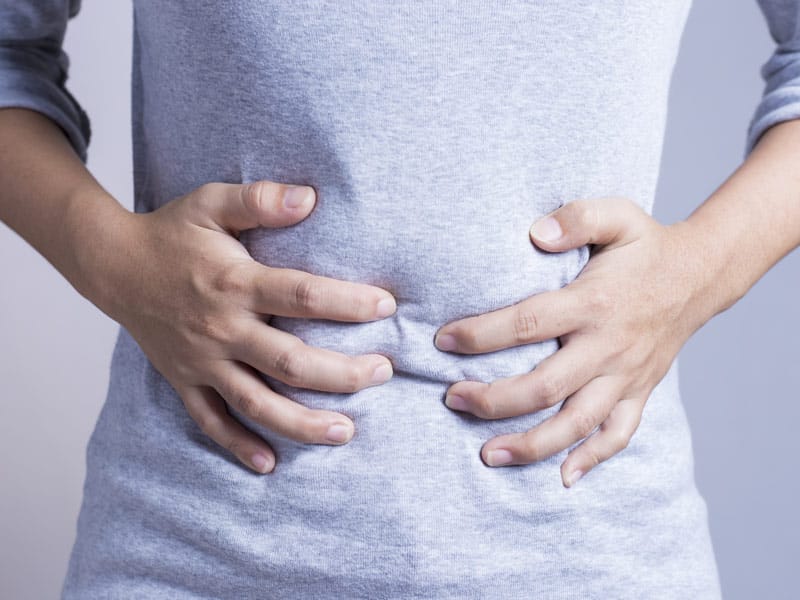Pandemic stress is enough to upset anyone’s stomach, but research suggests that digestive and gastrointestinal distress can be a direct symptom of COVID-19 and potentially an early warning sign.
Some studies estimate that about 16% to 33% of COVID-19 patients experience gastrointestinal (GI) issues, according to the Cleveland Clinic Journal of Medicine.
“The most common symptoms I’ve seen are nausea and diarrhea,” says Sripathi Kethu, MD, gastroenterologist on the medical staff at Methodist Richardson Medical Center. Some may also have elevated liver enzymes, which points to inflammation in the liver and is common with viral infections, Dr. Kethu adds.
“We may need to monitor enzyme levels, but what we really have to pay attention to is diarrhea and vomiting,” he says. “If severe enough, they can lead to dehydration or even kidney failure.”
Mayo Clinic classifies these symptoms as possible early warning signs, noting that digestive problems can develop before fever and respiratory symptoms.
TREATING GI SYMPTOMS
Why a respiratory virus causes intestinal problems can be traced to inflammation. As the virus attacks the intestines, it can cause a severe form of inflammation in the colon known as colitis.
“Symptoms of colitis include diarrhea and bleeding in the stools,” Dr. Kethu says. “If the bleeding lasts more than two days, you should come to the hospital to get checked out. We need to do a colonoscopy to determine the extent of the blood loss and confirm that it’s COVID-19.”
Fortunately, most COVID-19 cases are mild, Dr. Kethu says, and GI issues typically disappear in about a week with plenty of rest, hydration, and a change in diet.
“We always recommend avoiding dairy products because they’re hard to digest with GI illnesses,” he says.
Some patients find relief in over-the-counter medications, such as loperamide to treat diarrhea and an antihistamine like diphenhydramine for nausea.
INFLAMMATORY BOWEL DISEASE
It’s too early to say whether COVID-19 will lead to lasting or permanent gastrointestinal damage in people with existing inflammatory bowel disease (IBD), such as Crohn’s disease or colitis. But preliminary research has found that COVID-19 patients with active IBD may be more vulnerable to complications, Dr. Kethu says.
“It’s not just a worsening of their gastric issues,” he says. “Some studies show they may have a slightly worse prognosis when it comes to respiratory issues, as well.”
What’s more, patients with IBD may already be taking potent immunosuppressant steroids. These medications help with GI symptoms, but they may also lead to a higher risk of infection from the coronavirus or other pathogens.
“I tell patients they have to be extra cautious,” Dr. Kethu says. “But you should never stop or change your medications without talking to your doctor first.”
WATCH FOR OTHER WARNING SIGNS
A study published over the summer suggests an early diagnosis of GI symptoms caused by COVID-19 could be key to early detection and treatment.
But it’s also worth noting that GI distress is common with a wide range of bacterial and viral infections. So don’t rush in for a COVID-19 test just because you’re sick to your stomach.
“People ask me, ‘If I have nausea, vomiting, or diarrhea, do I need to get tested?’” Dr. Kethu says. “Not necessarily, not unless they know they’ve had exposure to the coronavirus or notice other COVID-19 symptoms.”
Being mindful of changes in your body and discussing your concerns with a physician is the best recommendation to stay safe during a pandemic, Dr. Kethu says.
And for those suffering from “pandemic fatigue,” he advises everyone to remain vigilant, whether you’ve gotten the vaccine or not. After all, there’s no cure for COVID-19 and breakthrough infections are still possible.
“I’m seeing more people let down their guard, and that’s a mistake,” he says. “You have to continue to wear masks, maintain social distancing, wash your hands, and get the COVID-19 vaccine and flu shot if you haven’t already. The situation will only get worse if people get sick with both the flu and COVID-19.”

